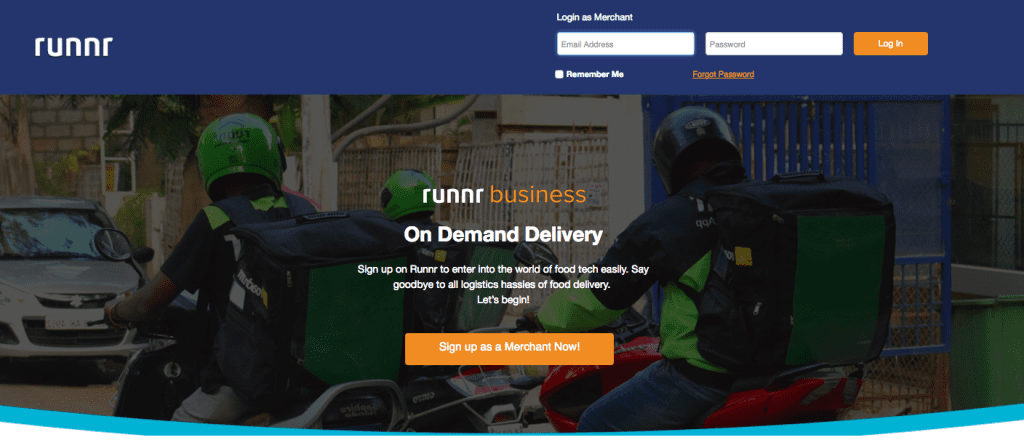Yet another food delivery startup appears to have bitten the dust.
Runnr, which operated in Bangalore and Mumbai, appears to have shut down its food delivery operations. Until recently, its website had options for users to order food, and threw up lists of restaurants and dishes.

Its website now has transformed into a sign up page for merchants, with options for restaurants to start using Runnr as their food delivery solution. It also has an option for users to register as Runnrs.

Runnr’s shutdown of its food delivery operations and a possible pivot to an operations business will mean a full circle for the company, which had started off as RoadRunnr in 2015 as a B2B delivery service. In 2016, it had joined hands with struggling food delivery startup TinyOwl, and rebranded as Runnr, which was to be a consumer facing entity that was to focus on food deliveries. The companies had hoped that their combined synergies would help them crack the food delivery space. Runnr’s consumer app was launched in June last year in Mumbai and Bangalore, and had looked fairly impressive at first glance.
However like many of its peers, Runnr however found it hard to eke out profits. Large rounds of layoffs had followed towards the end of 2016, and several senior employees were let go of. Runnr had been operating on a bare-bones structure since the beginning of the year, sources told OfficeChai. Through its two year old history, Runnr had raised Rs. 182 crore from investors; TinyOwl had raised a similar amount.
Runnr sent out messages to its users about the shutdown of the service. “Dear Customer, We would firstly like to heartily thank you for regularly using our service. We are unfortunately having to close down operations in your locality. We feel privileged to have had the opportunity to serve you,” it said.
Runnr’s exit from the food delivery space is yet another indication of the bruising nature of the industry. 2015 had seen scores of exits from the space, including Dazo, SpoonJoy and Eatlo; 2016 had been no easier, with Eatfresh, Slurpyn, and Cookaroo shutting down. Even the bigger players have had their share of troubles — Zomato had let go of 10% of its employees towards the end of 2015.
But things appear to be settling down. Zomato, Swiggy and Foodpanda are the three large players left in the industry, while companies like Freshmenu and Faasos cater to their own niches. With many of the smaller players slowly bowing out, it’s perhaps time for these companies to consolidate their positions, and finally start making some money.
[fblike]